7 Reasons You Hit a Workout or Weight Loss Plateau, And 5 Quick Fixes.

So you’ve hit a workout or weight loss plateau the size of a…well, actual plateau, eh?
Have no fear, our step-by-step guide will get you back on track! (Plus, the most badass Bruce Lee quote you’ll ever read).
Whether you’ve stalled in your weight loss journey, strength training, or some other fitness benchmark, today we’ll tell you exactly how to keep progressing by sharing with you the exact tools we use with our coaching clients.
Don’t lose morale. Together we got this!
We’ll cover:
- What is a plateau?
- How do I know If I’ve hit a plateau? 3 ways to tell…
- Why am I plateauing? 4 reasons why…
- Is a plateau normal? (The Dip)
- What should I do when I hit a plateau? (Setting Personal Records)
- 5 tips and tricks for overcoming a plateau
I know how demoralizing plateaus can be, especially when it comes to strength training and weight loss – they can be a total momentum killer!
It’s actually why we built our newest app, Nerd Fitness Journey! It’s designed so when you wake up in the morning, you know the exact next step to help you reach your goals.
You can try it for free right here, so this plateau can be a thing of the past:
What is a Plateau?
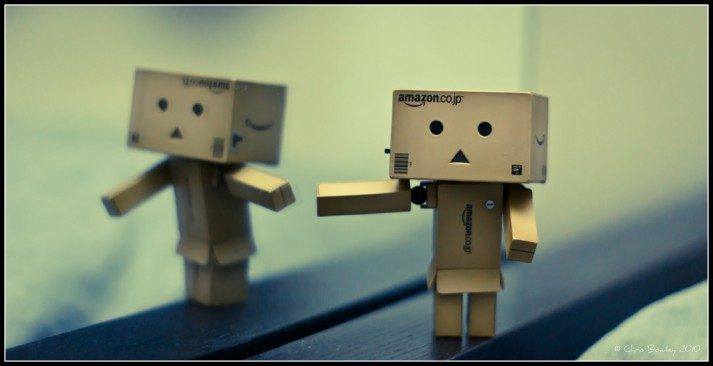
A plateau occurs when you stall out on progress despite continuing to do “all of the right things,” usually including eating right, exercising properly, getting adequate rest, etc.
Our bodies go from losing weight consistently to getting stuck at a certain number. Or we go from building muscle and getting stronger, to having a week or two where we can’t seem to lift anything heavier.
We call this point in our training “The Plateau,” and we don’t like being stuck on them.
As we learned in a previous article on happiness, humans (nerds especially) are happier when we make progress.
When we work hard for something and don’t see progress, we get unhappy.
How Do I Know If I’ve Hit a Plateau?

I get a lot of emails from people who tell me they’re stuck in a plateau.
They talk about how they’ve been eating right, exercising, and getting enough rest and they can’t seem to make progress!
They throw their hands in the air, freak out, get discouraged, and give up or quickly move onto the next plan that they hope will work.
When somebody comes to me saying they’ve plateaued, my first response is always:
“Have you REALLLLLLLLY plateaued? REALLY?”

In a strong majority of the cases, plateaus are really just issues with concentration, tracking, and discipline in disguise. Before you think you have plateaued, consider the following:
1) HOW IS YOUR NUTRITION…REALLY? Oftentimes we think we are being diligent, until we realize that after a few weeks of eating great we’ve started slacking. “Oh I’ve been good, just this one time…” and “Hmmm, sure why not” become more commonplace as we start to fall back into old habits. Track your calories for the next week and check your numbers.
And even if you are eating the right amounts of food, there’s this: as you lose weight, your metabolism slows down. This isn’t sabotaging black magic, it’s science.
There’s simply LESS of you that your body needs to maintain.
Here is the estimated daily resting calorie burn (“sit on your ass all day”) of a 35-year old male nerd at 3 very different weights:
- 300 lbs: 2,600 calories.
- 250 lbs: 2,300 calories.
- 200 lbs: 2,000 calories.
You might have hit a plateau simply because you’ve reached an equilibrium of calories consumed to calories burned! Which means what need to adjust your calorie intake to continue losing weight.
If you are trying to bulk up, are you eating ENOUGH calories to promote muscle growth? Rededicate yourself for two weeks, track your meals, and see if progress picks back up!
2) HOW ARE YOUR WORKOUTS…REALLY? If you are weeks or months into a workout plan, I bet the initial luster of “NEW! PROGRESS! WINNING!” has worn off.
Have you been skipping that last rep, cutting out an exercise here or there, getting bored and wanting to go home?
I know when I hit a plateau at the gym, it’s generally because I haven’t been pushing myself as hard as I had been previously. Track your workouts diligently for two weeks and see if these changes kick you back on track.
3) HOW iS YOUR SLEEP?…REALLY? This is one that most people skip out on. They are exercising, eating right, but for whatever reason they’ve been slacking on their sleep.
We all know sleep is important; lack of sleep leads to increased levels of stress, less time for our bodies to rebuild muscle, to recover from strenuous activity, and more.
I know that if I didn’t get a good night’s sleep, then my performance in the gym the next day will suffer.
Can you honestly say you’ve spent two weeks with quality sleep, nutrition, and exercise?
In many cases we think we’re stuck, in need of some sort of drastic change or adjustment to kickstart progress again. Now, there are definitely instances where we ARE stuck or stalled, and that’s when things need to change.
However, before we get to covered the dreaded plateau, let’s get a few things clear.
Why Am I Plateauing?
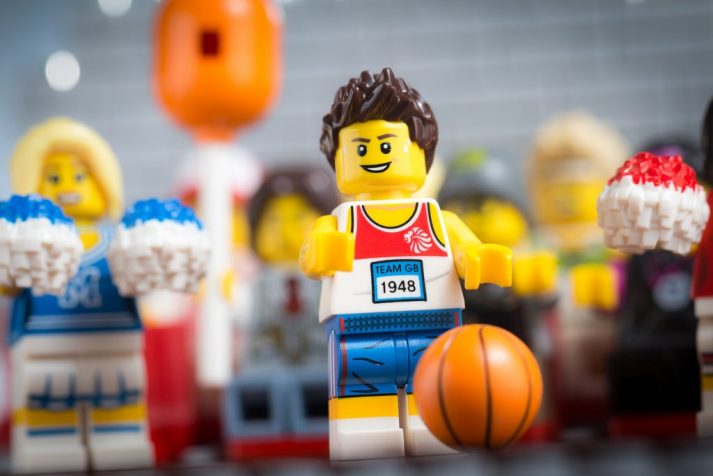
To start, linear progress cannot continue indefinitely:
- If you are learning to squat and you start with just the bar, adding 5 lbs a week (which is how you should learn to squat!), you will eventually reach a point where your body cannot build the strength/muscle fast enough to continually add 5 lbs a week. If it DID work that way, in three years everybody would be squatting 1,000 pounds.
- You will run into the same issues with weight loss. For example, it’s easier for you to lose 3 pounds a week when you are at 300 lbs than it is to lose 3 pounds a week when you are 150 pounds….there’s more of you to “lose” when you’re bigger and thus progress will be easier. If you could lose 2-3 pounds a week every week forever, at some point you’d disappear, and we don’t want that. Weight loss might slow to 1 pound every other week.
- Your margin for error gets smaller. When you are at a higher body fat percentage, or just getting starting with training, you can make a lot of progress quickly due to there being MORE of you to lose, or MORE gains to make quickly. As you start to make progress, you can’t keep making big progress without making more and more dedicated effort.
- Adaptive thermogensis. Our bodies WANT to maintain the extra body fat we have (“I don’t know when I’ll need this, better save”), and are actively working in unison to preserve it – so even after a few pounds, it’s going to be a persistent challenge to keep progressing. It’s a subject a dive in deep in the article “Why can’t I lose weight?” If you’ve stalled on your weight loss journey, this might be the problem, as your body is adapting to the body fat being lost.
Your progress at a consistent pace will definitely slow down, which can FEEL like a plateau.
If you’ve been training for more than a few months, you might need to slightly adjust your expectations. Maybe this week you can only add 2.5 lbs to the bar. Or 1lb. Maybe your muscle-building will crawl to 1 lb gained a month.
It happens to all of us.
Now, if your progress stalls out COMPLETELY or you actually regress, AND you are doing all of the right things, then congrats!
You MAY have plateaued.
Like in games like World of Warcraft, at some point you will stop gaining experience from killing rats – you could spend all day doing so but because you’ve hit a certain level they no longer provide you with value.
It’s time to move onto attacking spiders, then orcs, then dragons.
When you started out, just doing 5 push-ups might have felt like a full workout. Now you can do 50 push-ups for a warm-up and not break a sweat.
Our bodies are constantly adapting and learning to manage the stresses we put on it, seeking the path of least resistance.
Back to our gaming analogy:
If it’s something worth doing, there will most likely be grinding involved, and that’s why I need to talk to you about The Dip.
No not a strength training type of ‘dip’, though those are good to help bust through a plateau too!
You can learn more about how we help build plateau-less workouts at Nerd Fitness by downloading our free Strength Training 101 ebook when you sign up in the box below:
- Everything you need to know about getting strong.
- Workout routines for bodyweight AND weight training.
- How to find the right gym and train properly in one.
Is a Plateau Normal? (The Dip)
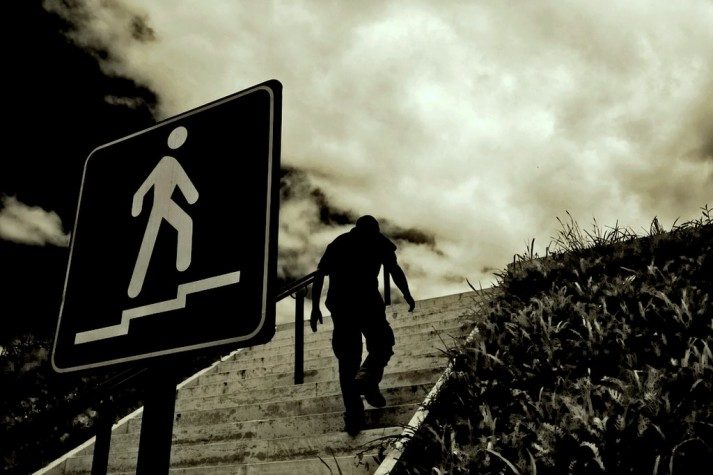
I want to introduce you to Seth Godin, author of The Dip.
We all hit plateaus in our lives and quests for health and happiness. In order to be successful at the task at hand, we need to grind our way through that low point (or flat point) until we can climb out and continue progress.
Here’s a visualization of the dip:
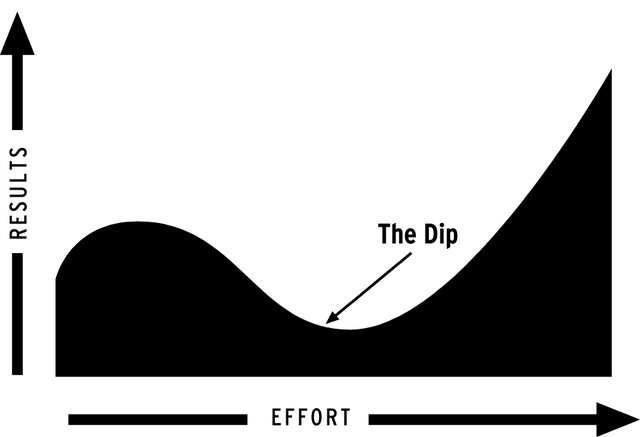
When you first start something new, you can make quick progress and everything rocks because you see big changes.
However, after a few months, the reward you get from your effort decreases and it seems like you’re rapidly slowing down:
- In the first few weeks of weight loss, everything is GREAT! The scale is moving, your clothes are getting looser, progress is exciting because it’s coming so quickly. Then, you might have a few weeks where you’re really trying hard and yet the scale stalls or increases.
- When building a new running habit, each new run is exhilarating – you rapidly progress from wheezing and coughing after two blocks to now being able to run a whole mile! A few months later, that progress slows, and you find yourself struggling with the same distances and speeds even though you’re doing all of the right things.
- When lifting weights, the first few months can be life changing. Squats, deadlifts, pull ups, push ups. Every session in the gym is an opportunity to see massive progress compared to the time before, except for that week or two when you walk in and you have to lift less than before! What gives!?
When we hit that dip/plateau where our hard work seems like it goes unrewarded, it’s easy to give up and say, “I’m a failure.”
Not true.
We will all experience a dip when it comes to progress on things that are important to us.
If we want to TRULY be successful, we need to anticipate the dip’s arrival and plan for it so that it doesn’t completely derail us.
Much like grinding out experience points in an RPG, sometimes we need to grind out practice in life, workouts, nutrition, and more…until we can hit that sweet spot for progress again.
So, how do we stay dedicated, focused, and motivated through the dip?
How do we progress during the plateau when we feel like our hard work is a waste of time?
We focus on small wins, and find a way to get a teeny tiny bit better.
What Should I Do When I Hit a Plateau? (Setting Personal Records)
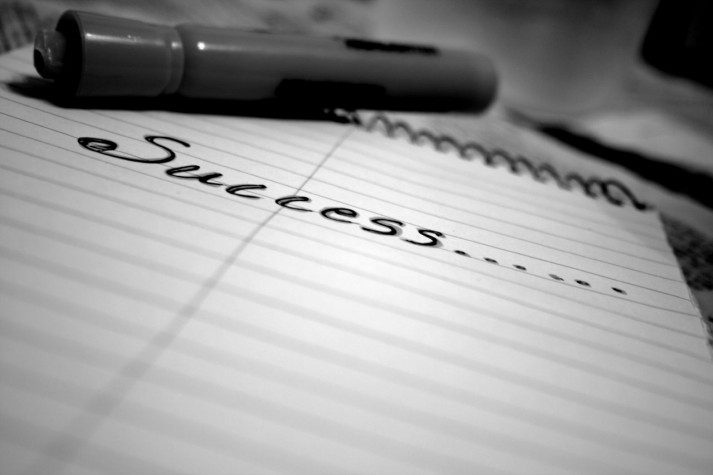
In order for us to crawl out of a dip or off a plateau, we need to find a way to make a small win every day.
Think of these small wins like “a light to you in dark places, when all other lights go out.”
The longer we’ve been training, the older we get, and/or the more advanced we get in our training, the more likely we’ll be to hit plateaus and the more necessary it will be to grind out small victories, prepare for dips, and power through them.
Here’s how you can grind out your own small wins and prove to yourself that you are still progressing when you are in the dip:
1) TRACK EVERY SET, REP, AND WORKOUT. Find a way to be better today in SOME WAY than you were yesterday, and prove to yourself that you are still making progress – even if it’s progress in a different way that you were progressing before.
If you are stuck at 3 sets of 5 reps of 150 pounds on the bench press and haven’t been able to go up to 155 lbs for a few weeks, try 3 sets of 6 reps of 150 pounds.
Or 4 sets of 5 reps of 150 pounds.
Then come back to 3 sets of 5 reps of 155 a few weeks from now, and see if you can do that.
If you wait 60 seconds between sets, try waiting 90 seconds instead and lift a different amount
As long as SOMETHING has progressed in some way – your total amount of weight lifted, decreased time between sets, one extra rep, or one more pound lifted – it proves to yourself that you made progress. Remember, progress makes us happy.
RECORD EVERYTHING.
2) COLLECT TINY WINS. Optimus Prime doesn’t transform with one single movement; it’s a combination of hundreds of thousands of tiny movements that happen rapidly.
We are transformers (Joe especially), and our small changes add up too.
It’s these tiny, small victories that can push us over the edge. Enough small victories and we can reach that tipping point, that end of the dip where progress continues again.
Find a way to set a tiny win in SOME WAY each day that shows you that you are getting better/faster/stronger.
Here’s an example: I have been working on handstand balancing for probably 18 months. For the past few months, my progress has stagnated and even gone in reverse on some days (helloooo Dip!).
I continued to work on building the habit of handstands for five minutes a day (Hard Hat challenge for the win!). Progress felt nonexistent, but I knew that my continued dedicated practice was adding up in ways that didn’t make themselves readily apparent.
I had “stalled,” so I focused on getting tiny wins: increasing flexibility in my wrists, staying against the wall as long as I could, practicing my kick ups, tightening my core, etc.
Despite not being able to balance for longer than 10 seconds at any point in the past, I kicked up into a handstand, without even touching the wall (something else that had never happened before), and I held my handstand for 24 seconds!
I still have a ways to go before I’m holding perfectly vertical handstands for 60+ seconds, but months spent grinding out practice in the dip have paid off.
I made it through the plateau, and my progress has continued rapidly after struggling for months. Those months of struggle were teeny tiny wins in different ways that added up until I hit that tipping point where progress exploded.
3) TRACK OTHER METRICS OTHER THAN THE SCALE. The scale can lie. The scale will DEFINITELY slow down even if you are making progress in healthier ways, simply due to the fact that you have less weight to lose than you did before! You might also be dealing with extra water weight, or bloat, or menstruation, or anything in between.
So, track other things! Here’s what you can track to help keep you motivated while pleateaued:
- Take biweekly photos. Who cares if the scale isn’t moving. Are you looking better? Are you FEELING better? Do your clothes fit better? That is progress.
- Take measurements. Spend 5 bucks on a cloth tape measure (or one of these), and measure the important parts of your body. Maybe the scale isn’t moving, but you took half an inch off of your waist. Or maybe you added a quarter of an inch to your arms.
- Track your body fat percentage. A simple caliper is enough to show trends. Remember Saint? His weight went UP but his body fat percentage dropped. Had he only been tracking the scale, he might have panicked during his ‘dip.’ Fortunately, he was tracking more metrics and used that momentum to catapult himself to victory.
The goal is to consistently prove to ourselves that we are moving one step closer towards our goal.
This is exactly the system we used when we built Nerd Fitness Journey.
When you’re working through the app, not only are you doing fun missions, but you’ll see how tasks build up to your larger goal. There’s no getting stuck or frustrated, just log in and work on the next adventure.
If you want, you can sign-up for a free trial right here:
5 Tips and Tricks for Overcoming a Plateau

The above is just the beginning. This will also help you make progress and get out of that dip:
1) Shock your workout. Our bodies crave efficiency, and love to be as lazy as possible, but we truly thrive on chaos. So introduce some chaos into your system!
Note: This is NOT the same as “muscle confusion” (which is a made up marketing term to sell DVDs). We’re still progressing, lifting more, and doing the same exercises – we’re just throwing in some variation occasionally to help stimulate progress.
If you do the exact same thing over and over and over, your body becomes more efficient at that activity.
In fact, your body can learn and adapt after doing the same thing enough times so that it burns fewer calories to carry out the process. So mix it up!
- If you are trying to run a faster 5K? Mix in a day of sprints rather than just basic runs.
- Trying to increase your deadlift? Rather than just doing a 1-rep max, do a day of higher volume, or train the deadlift twice a week.
- Want to squat better? Squat with higher frequency. NF Lead female coach Staci followed an advanced Smolov Squat program for 13 weeks (Warning: not for beginners). Your body can adapt and overcompensate by getting stronger.
- Want to improve your upper body strength/size? I’m currently doing a PLP program along with my regular workouts. Starting with 10 total reps of Pull-ups, Lunges, and Push-ups, and every day add a rep, for 50 days.
2) Adjust your diet. Your body can also become quite efficient with calories (not to mention the oft-mentioned but controversial “starvation mode” theory), and can sometimes struggle to progress.
As we lay out in “Why can’t I lose weight?,” if you’ve lost a decent amount of weight, your body now burns significantly fewer calories each day (there’s less of you to manage! This means you need to adjust your calorie intake!
So, I would start by tracking your intake and determine how many calories you should be eating.
ONLY after that doesn’t work would I recommend the following:
Consider throwing in one day a week of OVER eating, along with days where you are intermittent fasting. Keep your body guessing and see if that shocks your system back into weight loss mode.
Consider adjusting your macronutrient breakdown. Keep your protein intake high, and adjust your carbs and fats. Some people feel better or worse with high fat or low fat, high carb or low carb.
And remember, thermodynamics still rule all: weight loss requires caloric deficits.
3) REST! I’ve heard it said “there’s no such thing as “overtraining, just under-recovering.” Are you getting enough sleep?
Maybe you’re a new parent and trying to maintain your old workout routine on 2 hours of sleep a night.
Or work has you stressed like crazy and it’s causing you to eat like crap.
Rest is such an important part of a healthy lifestyle that it needs to be prioritized too. In the book Essentialism, this is referred to as “Protecting the Asset.”
You are the asset.
If you are trying to do too much, or you’re caught in a plateau, consider a week off, refocusing on sleep and recovery, and come back refreshed.
4) Adjust your goals. Maybe your body needs a new dragon to slay.
Again, nature loves chaos. If you are focused solely on weight loss, you might feel like you have stalled out. So shift your focus. Work on handstands. Or running faster.
Or doing your first pull up. Pick a new skill!
Try something different. Give your body a chance to recover and then come back to it.
If you’re solely focused on the scale and it stalls out, it can be depressing. So put the scale away for a month, and instead focus on the process of getting stronger and eating better. Stop stressing and remember to enjoy the game you’re playing.
5) Accept that we have bad weeks. We are complex pieces of machinery.
Sometimes shit happens.
We just have bad weeks and can’t lift enough or we GAIN weight when we expected to lose weight. It doesn’t make you a bad person, it doesn’t make you a failure, it makes you human.
So on days when you feel great, PUSH yourself harder. On days when you feel like crap, scale back the heavy lifting and focus on more reps or better technique.
The greatest predictor of success in our lives is grit (which can be developed). Grit is what you need to slog through these slow weeks. These dips are where we find out who’s truly dedicated. I know you are, and you know you are.
Remember, look for any sign of progress in any way to reveal that “light” at the end of the tunnel.
If you are stuck on a plateau when it comes to strength training, consider working with one of our Yodas in the 1-on-1 Online Training Program at Nerd Fitness! No guilt, no shame. Just somebody to keep you accountable, expert guidance from somebody that knows you, and peace of mind knowing you’re doing the right thing!
How did you break through your plateau?

“If you always put limits on everything you do, physical or anything else, it will spread into your work and into your life. There are no limits. There are only plateaus, and you must not stay there. You must go beyond them.” -Bruce Lee
Hopefully I’ve covered everything you need to know about plateaus. What’s that? You were expecting some lame joke about plateaus somewhere?
You know me too well. Okay, how bout this one:
Did you know that a plateau is the highest form of flattery?
Get it?
Thank you, I’ll be here all week.
I want to hear your story:
- Have you successfully busted through a plateau? Leave a comment with how you got out of it.
- Are you currently stuck? If so, what’s ONE SPECIFIC piece of advice you’re taking from today’s article to apply to what you’re going to do this afternoon?
Let’s hear it! I’m excited to hear how I can help.
-Steve
PS: We know starting with this stuff can be intimidating. If you’re looking to take it to the next level:
- 1-on-1 Online Coaching: A coach from Team NF gets to know you better than you know yourself and builds a workout program and nutritional strategy that fits your busy life, your body type, and your goals.
- Nerd Fitness Journey: a fun app that will show you the path for overcoming any plateau. Sign up for a free trial below:
###
Photo Sources: JD Hancock: Heroes, gato-gato-gato: mountains, Chris J Bowley: box, seeveeaar: success, Stefan Baudy: question, Stefano Corso, Life’s Paradox, Sergio Bertoli: Bruce Lee
from Nerd Fitness https://ift.tt/2oHnPki
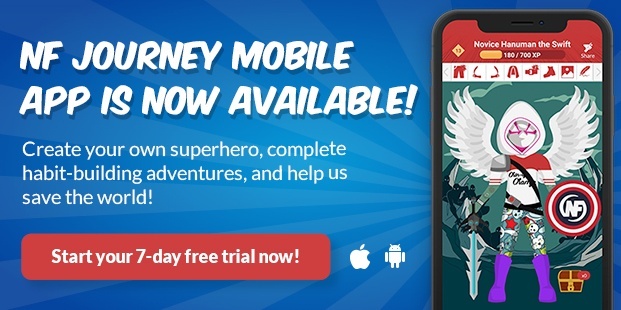
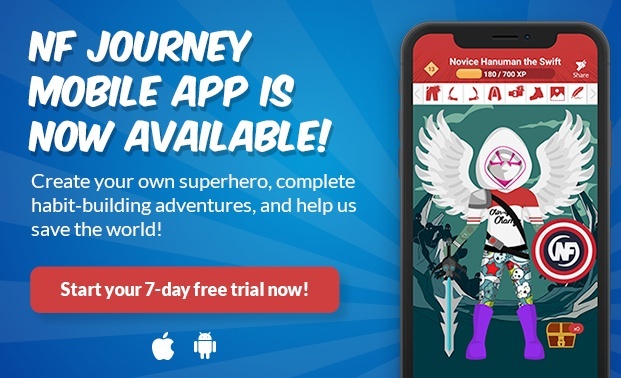

0 comments:
Post a Comment